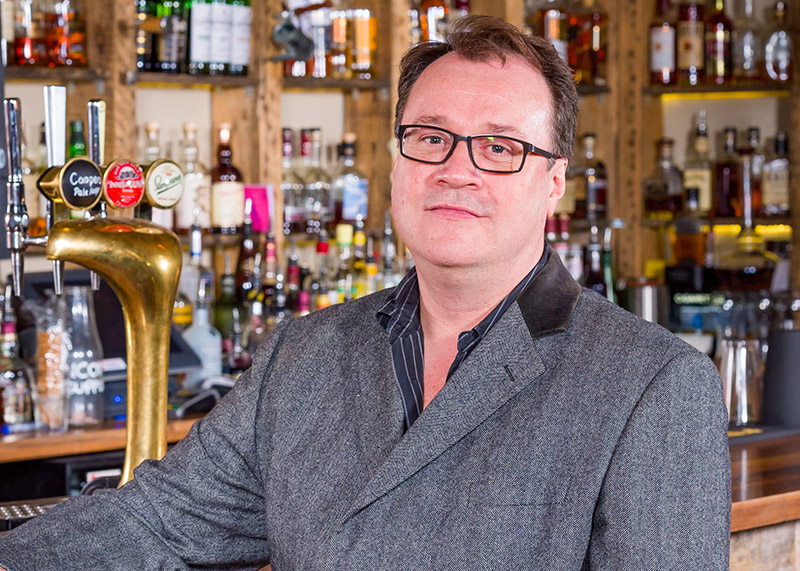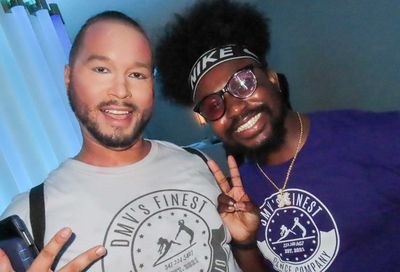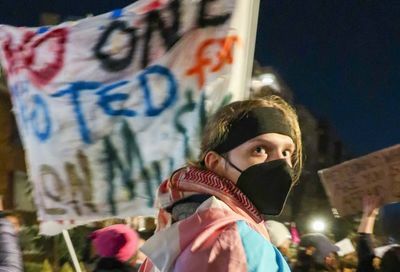Detentions of gay men and women signal another anti-LGBTQ crackdown in Chechnya
Chechen leader denies reports of arrests, detentions, and torture at secret facilities

Several men and women have been detained in Russia’s Chechnya region on suspicion of being gay, signaling yet another renewal of efforts to purge the Muslim-majority state of anybody who does not conform to sexual or gender norms.
The Russian newspaper Novaya Gazeta reported on Friday that administrators of LGBTQ groups on the social network VKontakte began warning members of a renewed persecution and arrests. Sources with the Russian LGBT Network also confirmed the veracity of the reports to Novaya Gazeta.
“In Chechnya, the capture of [LGBT] guys and girls again broke out,” one post on VKontakte read. “I ask everyone who is still free to take this message seriously and run away from the republic as soon as possible. I ask you to turn to human rights defenders, the media, friends who can help you.”
The reports come about 18 months after more than 100 gay men in Chechnya were arrested and detained against their will without trial, with survivors reporting they had been tortured and seen compatriots killed while in prison. Those detentions, arrests, and alleged killings occurred at intervals on a continuing basis during the spring and summer of 2017.
Survivors of the detention facilities previously told news outlets and LGBTQ advocates in Russia that, after they were arrested, authorities seized their phones in order to hunt down and arrest and torture other gay men or LGBTQ people. Upon release, authorities encouraged families of the men — many of whom are devout Muslims — to kill anyone they suspected might be gay, even going so far as to endorse “honor killings.”
One of the former detainees, Maxim Lapunov, was the first to lodge a complaint. Lapunov, who is not an ethnic Chechen and hails from Siberia, claimed that he was captured by unidentified people on a street in Grozny, and kept in custody for two weeks, where he was repeatedly beaten. He was finally let go only after signing a statement acknowledging he was gay. Upon being released, he was told he would be killed if he talked about his time in detention.
According to a report from Crime Russia, Chechen authorities have also deceitfully and deliberately accused some former detainees of being “terrorists” affiliated with ISIS and other Muslim-extremist groups. By doing this, authorities can justify surveilling suspected LGBTQ people under threat of future arrest, and can also “red-flag” their passports to prevent them from leaving Chechnya — as authorities in greater Russia or Western nations may be duped into believing that victims of the purge are threats to national security.
Novaya Gazeta, which was the first to report on the detentions, later reported on mass executions that had occurred earlier, in January 2017, in the Chechen capital of Grozny, and published a list of missing people who are now believed to be dead.

Yet despite calls from LGBTQ activists and from European and international leaders for an investigation into the alleged killings, Russian authorities claimed that a state investigation failed to find evidence supporting survivors’ claims of torture and abuse in makeshift detention centers — largely because few people had filed complaints about being arrested and detained against their will.
For his part, Ramzan Kadyrov, the head of the Chechen Republic, has continued to insist that no such purge of LGBTQ people ever occurred in 2017, and is not happening now.
“All this … is untruth and misinformation,” a spokesman for Kadyrov told RBC. “In the Chechen Republic there are no prisons and places of detention that are not part of the FSIN [federal penitentiary] system.”
LGBTQ activist Igor Kochetkov told The Associated Press that LGBTQ supporters have seen a spike in detentions of men and women suspected of being gay since late December. He told the AP that activists plan to release a report on Monday, Jan. 14, detailing how many people have been detained thus far and whatever other information is known at this current time.
In November, 16 countries at the Organization for Security and Cooperation in Europe invoked the “Moscow Mechanism,” authorizing a fact-finding mission into allegations of anti-LGBTQ atrocities in Chechnya and whether the Russian government failed to respond adequately.
A month and a half later, OSCE’s investigative report found that there is “overwhelming evidence that there have been grave violations of the rights of LGBTI persons in the Chechen Republic,” and cited personal stories from victims. The report also calls on Russia to establish a special investigative committee to “undertake an effective, impartial and transparent investigation of the allegations” and “bring to justice the alleged perpetrators.”
The report urged the Chechen government to shut down all unofficial detention facilities in the republic where the LGBTQ victims had been held and to hold accountable all police and government officials who either directly participated in the anti-LGBTQ purge or had knowledge of it.
Lastly, the report recommended that other OSCE nations, including the United States, welcome LGBTI refugees from Chechnya and take into account their “special security needs” by providing them with safe housing and medical and psychological support.
Even prior to the report being issued, LGBTQ advocates, most notably the Human Rights Campaign, repeatedly called on the Trump administration to acknowledge the anti-LGBTQ actions being taken by the Chechen government and condemn them. In early December, the organization sent a letter to U.S. Secretary of State Mike Pompeo calling on him to forcefully and publicly condemn the purge while participating in an OSCE Ministerial Council meeting.
In December 2017, the U.S. Treasury Department placed sanctions on Kadyrov and other Chechen officials who were suspected of human rights violations. Previously, the State Department (under the leadership of Pompeo’s successor, Rex Tillerson) and U.S. Ambassador to the United Nations Nikki Haley denounced the anti-gay purge, but President Trump, Vice President Pence, and Pompeo have never followed suit.
“Nearly two years after reports first surfaced of anti-LGBTQ violence and killings in Chechnya, we are once again hearing disturbing accounts of state-sanctioned detentions and abuse,” Ty Cobb, global director for the Human Rights Campaign, said in a statement. “We have repeatedly called on the Trump-Pence White House to speak out and help bring an end to this persecution, but instead the White House has largely ignored the actions of the Russian-backed regime in Chechnya. Human rights violators in Chechnya must be held accountable and be brought to justice. Lives are hanging in the balance.”
Support Metro Weekly’s Journalism
These are challenging times for news organizations. And yet it’s crucial we stay active and provide vital resources and information to both our local readers and the world. So won’t you please take a moment and consider supporting Metro Weekly with a membership? For as little as $5 a month, you can help ensure Metro Weekly magazine and MetroWeekly.com remain free, viable resources as we provide the best, most diverse, culturally-resonant LGBTQ coverage in both the D.C. region and around the world. Memberships come with exclusive perks and discounts, your own personal digital delivery of each week’s magazine (and an archive), access to our Member's Lounge when it launches this fall, and exclusive members-only items like Metro Weekly Membership Mugs and Tote Bags! Check out all our membership levels here and please join us today!
























You must be logged in to post a comment.